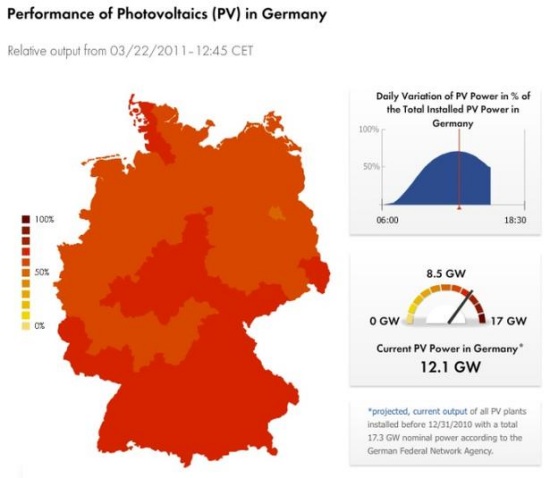Riding a wave of anti-nuclear sentiment in the wake of Japan's Fukushima disaster, the German government has decided to phase out all nuclear power plants by 2022. That’ll certainly prevent nuclear meltdowns. On the flip side, though, analyses by experts suggest that eliminating those plants will lead to a short-term increase in coal burning, resulting in 40 million extra metric tons of CO2 per year.
All in all, experts estimate the nuclear phase-out will lead to between 370 million and 406 million extra tons of CO2 being released into the atmosphere, before a shift to renewables tamps things down again. The resulting increase in the cost of greenhouse gas emissions permits (Germany is part of an EU-wide cap-and-trade program) and the flight of customers from traditional coal and nuke utilities to ones that use renewables, might even make these utilities vulnerable to takeover by foreign firms, reports Der Spiegel.



